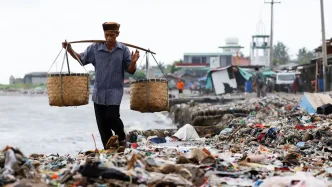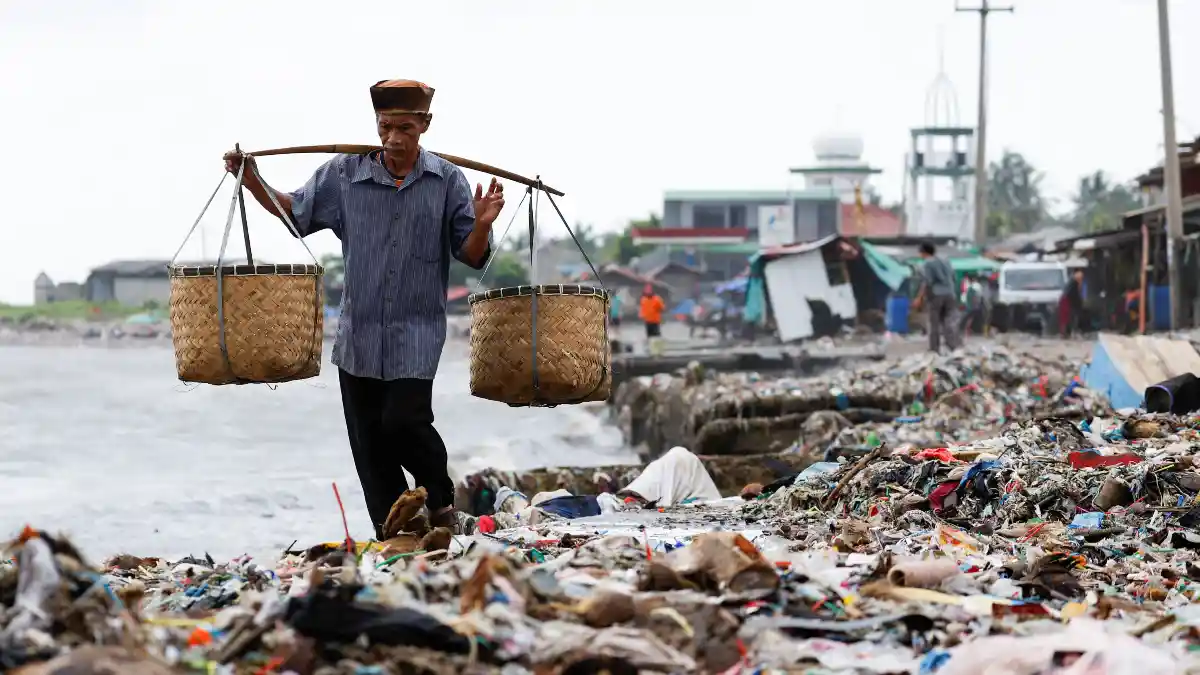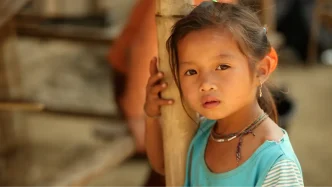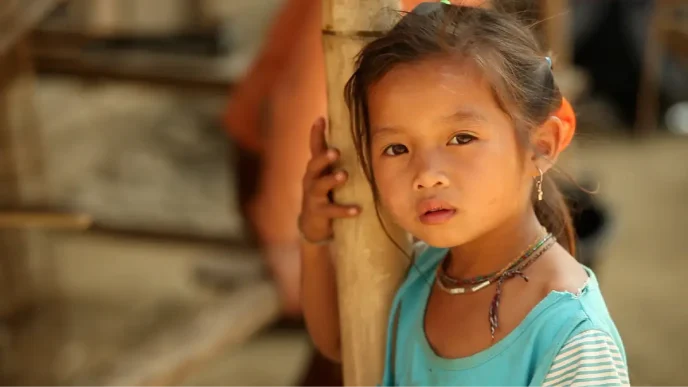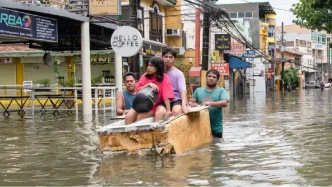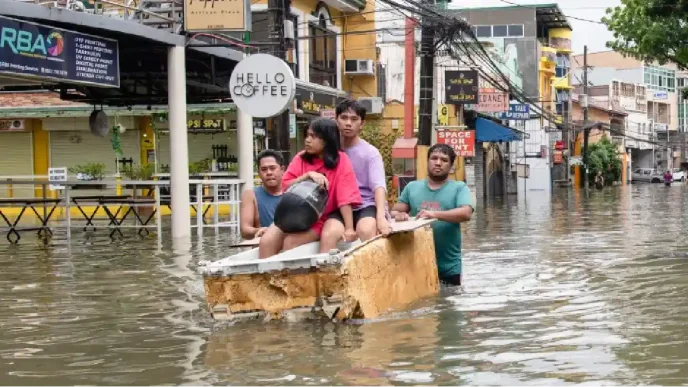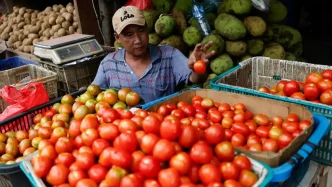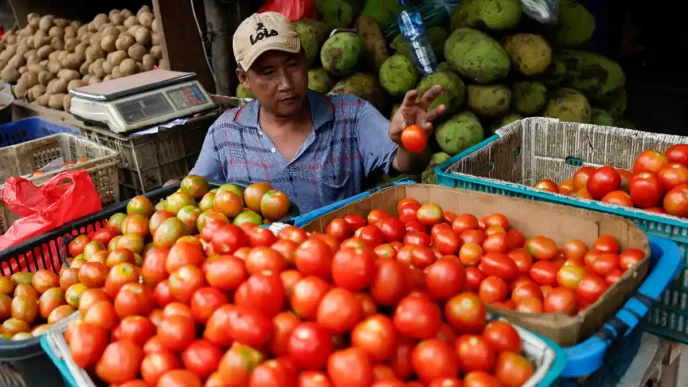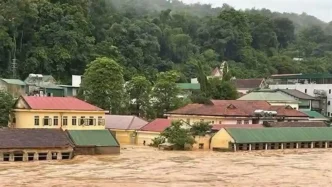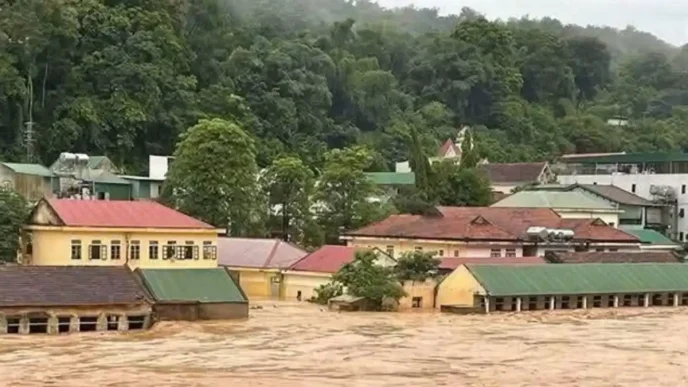Jakarta, a sprawling metropolis of over 10 million people, is grappling with a deepening water crisis that has left many of its residents struggling to access clean and affordable water. On Monday, hundreds of low-income residents from subsidized apartments, known locally as rusun, gathered outside City Hall to protest soaring water tariffs imposed under the 2024 Gubernatorial Decree on PAM Jaya’s pricing structure. Their grievances, coupled with ongoing infrastructure failures in neighborhoods like Kapuk Muara, paint a stark picture of a city where water—a basic human right—remains out of reach for many.
Protests Highlight Unfair Pricing
The demonstration at City Hall was a powerful display of frustration. Protesters, primarily from low-income backgrounds, argued that the new tariff structure unfairly categorizes rusun residents into a higher billing tier, with rates ranging from Rp 12,500 to Rp 21,500 per cubic meter (approximately US$0.77 to US$1.33). They demanded a reclassification into a lower tier, where water costs up to Rp 7,500 per cubic meter (about US$0.46), a rate more aligned with their limited means.
Adjit Lauhatta, chair of the Association of Indonesian Rusun Occupants (P3RSI), which organized the rally, expressed dismay at the government’s apparent inaction. He highlighted that complaints about inequitable billing have been raised repeatedly, yet little has changed. In response, PAM Jaya spokesperson Gatra Vaganza noted that the company had signed a memorandum of understanding with P3RSI in April, committing to fairer billing practices for rusun tenants. However, for many protesters, this pledge has yet to translate into tangible relief.
Infrastructure Failures Compound the Crisis
Beyond pricing disputes, Jakarta’s water challenges are exacerbated by crumbling infrastructure. In Kapuk Muara, a densely populated area in North Jakarta’s Penjaringan district, residents have been without reliable tap water for nearly a month due to pipeline leaks. The water from these pipes, when available, is often unsafe for use or consumption, forcing families to rely on private suppliers. Many have resorted to renting water trucks, paying up to Rp 20,000 (about US$1.23) per household daily for basic access.
For individuals like Dewi Lestari, a 37-year-old resident of Kapuk Muara, the struggle is a recurring nightmare. While she has access to a groundwater well, the water is murky and saline—a common issue in Jakarta’s northern coastal zones. This forces her to spend at least Rp 14,000 (around US$0.86) each day on just two gallons of clean water. She avoids using the groundwater whenever possible due to its poor quality, which she says causes skin irritation and poses health risks if consumed.
Another resident, Romlah, echoed similar frustrations over the slow pace of repairs. What she initially assumed was a minor issue has dragged on for weeks, draining household budgets. PAM Jaya first installed piping in the area in 2017 to meet high public demand, but maintaining and upgrading this infrastructure has proven challenging. On Monday, President Director Arief Nasrudin announced that pipe renovations are underway and expected to conclude within three weeks. In the meantime, temporary water tanks have been deployed to affected areas, though residents say this is a stopgap measure at best.
A Broader Struggle for Water Access
Jakarta’s water woes are not confined to specific neighborhoods or pricing disputes—they reflect a systemic issue affecting millions. Currently, PAM Jaya’s network serves approximately 73 percent of Jakarta’s households, with a target of full coverage by 2029. The majority of the city’s water supply, about 82 percent, is sourced from West Java’s Jatiluhur Dam, while the remainder comes from Banten and local rivers like Pesanggrahan and Krukut. Gatra Vaganza emphasized ongoing efforts to expand infrastructure and boost raw-water supply capacity, but these initiatives alone may not address the root causes of inequity.
Activists argue that infrastructure expansion must be accompanied by a fundamental shift in policy. Sigit Budiono, a research and campaign officer at the People’s Coalition for the Right to Water (KRuHA), stressed that access to clean water should be recognized as a human right, not treated as a commodity. He pointed to persistent disparities, particularly affecting slum dwellers and coastal communities, where access remains limited or prohibitively expensive. Without a commitment to equitable policies, he warned, sanitation conditions across Jakarta could deteriorate further, exacerbating public health risks.
Historical Context and Environmental Challenges
Jakarta’s water crisis is deeply intertwined with its geography and history of rapid urbanization. The city’s northern areas, close to the Java Sea, suffer from land subsidence—a phenomenon where the ground sinks due to excessive groundwater extraction and the weight of urban development. This not only contaminates wells with saltwater, as experienced by residents like Dewi, but also increases the risk of flooding, further straining water infrastructure. Efforts to combat subsidence, such as reducing reliance on groundwater, have been slow, and the piped network’s incomplete coverage leaves many with no alternative.
Historically, water management in Jakarta has been a contentious issue. Privatization of water services in the late 1990s, followed by partial re-nationalization, created a fragmented system where accountability often falls through the cracks. PAM Jaya, as the city-owned operator, faces the dual challenge of maintaining aging infrastructure while navigating political and economic pressures to keep tariffs low. The 2024 Gubernatorial Decree, intended to standardize pricing, has instead sparked backlash for its perceived inequity, particularly among the city’s most vulnerable residents.
The Human Cost of Inaction
For many Jakartans, the water crisis is not an abstract policy debate but a daily burden. Families in low-income areas spend a disproportionate share of their earnings on water, often sacrificing other essentials. The health implications are equally dire—reliance on contaminated or untreated water contributes to skin ailments, gastrointestinal issues, and other preventable conditions. In coastal zones, where salinity renders groundwater unusable, the lack of affordable alternatives perpetuates a cycle of poverty and poor health.
The protests at City Hall underscore a growing demand for accountability. Residents are not merely asking for lower prices; they are calling for a system that prioritizes their needs over commercial interests. The memorandum signed between PAM Jaya and P3RSI offers a glimmer of hope, but its implementation remains uncertain. Meanwhile, temporary fixes like water tanks and truck deliveries fail to address the structural issues at the heart of Jakarta’s water crisis.
Looking Ahead: A Call for Reform
As Jakarta inches toward its 2029 goal of universal water coverage, the path forward is fraught with challenges. Infrastructure upgrades, while necessary, must be paired with policies that ensure affordability and equity. The voices of rusun residents and coastal communities must be central to these discussions, lest the city’s most vulnerable continue to bear the brunt of systemic failures. Activists like Sigit Budiono argue that recognizing water as a fundamental right is not just a moral imperative but a practical necessity to safeguard public health and social stability.
International examples offer potential lessons. Cities like Cape Town, which faced its own water crisis in 2018, implemented a combination of conservation measures, tariff adjustments, and infrastructure investment to avert disaster. While Jakarta’s context differs, a similar multi-pronged approach—balancing immediate relief with long-term planning—could help mitigate the current crisis. Partnerships with regional governments, given the city’s reliance on external water sources like Jatiluhur Dam, will also be crucial to securing a sustainable supply.
For now, Jakartans wait for tangible progress. The pipeline repairs in Kapuk Muara and the promises of fairer billing for rusun tenants are steps in the right direction, but they are only the beginning. As the city grapples with the twin challenges of infrastructure decay and policy missteps, the question remains: can Jakarta transform its water system into one that serves all its residents, not just a privileged few?

